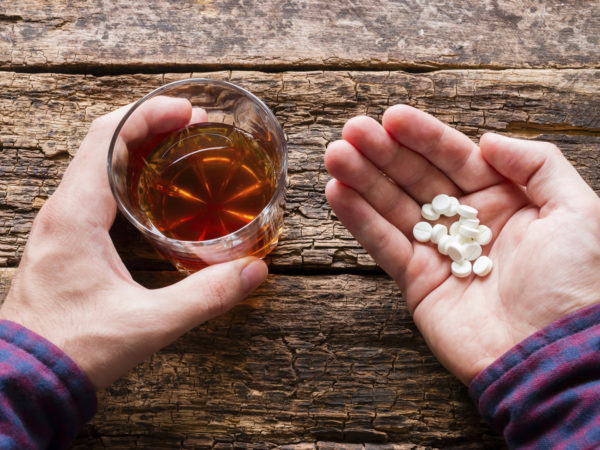Do Alcohol and Antibiotics Mix?
Does drinking while taking antibiotics lessen the effect of the medication?
Andrew Weil, M.D. | June 24, 2011

Originally published April 2004, updated June 2011
In general, drinking moderate amounts of alcohol when you’re taking antibiotics doesn’t lessen their effectiveness. But since both alcohol and antibiotics can lead to upset stomach, dizziness and drowsiness, the combination can amplify these side effects. More specifically, mixing certain antibiotics, including Flagyl (metronidazole), Tindamax (tinidazole) and Bactrim (trimethoprim-sulfamethoxazole) with alcohol can increase the likelihood of more severe side effects including flushing, headaches, stomach cramps, nausea and vomiting. If you’re prescribed an antibiotic and are in doubt as to whether drinking alcohol will cause side effects while you’re on the drug, ask your physician or your pharmacist. You also should check to make sure that an antibiotic won’t interfere with any other drug you may be taking.
Beyond that, the effect of chronic alcohol use on the liver can lead to changes in the way some drugs, including certain antibiotics, are metabolized. If you drink heavily and regularly, be sure to let your physician know that, especially if an antibiotic is prescribed. Under those circumstances, for the drug to be effective, you may need more, or less, than the usual dose.
Bear in mind that antibiotics not only affect the bacteria that are making you sick, they also destroy the beneficial flora in your gut. You can restore these helpful organisms by taking a probiotic supplement while you’re on antibiotics. Acidophilus is the general name for dried or liquid cultures of the living lactobacillus bacteria that aid digestion. Always check the expiration date to help ensure that the acidophilus product you choose is still viable. Take one tablespoon of the liquid culture or one to two capsules after meals, unless the label directs otherwise. I recommend taking acidophilus to restore “friendly” cultures even when you take antibiotics for just a few days. I particularly recommend supplements such as Culturelle, which contain lactobacillus GG, and products containing Bacillus coagulans 30 (BC-30) – both are strains proven to survive passage through the strong acid in the stomach. (Visit Culterelle for more information: www.culturelle.com)
In view of the growing problem of antibiotic resistance, I advise saving prescription drugs for serious bacterial infections. Never use them for viral upper respiratory infections, for example. Also, using them for acne isn’t very wise (instead, try an anti-inflammatory diet, taking essential fatty acids and using traditional Chinese medicine (TCM)).
For less serious infections, I recommend trying alternatives to these drugs first, including rest and use of botanical remedies. A naturopathic doctor (ND) or a doctor of Oriental Medicine (OMD) can also be a good resource for alternative approaches.
Andrew Weil, M.D.









